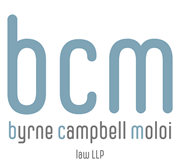

Patrick Campbell
Stockport Solicitor
3 Solicitors
Does not accept legal aid
Qredible can put you in touch with a solicitor:


Stockport Solicitor
3 Solicitors
Does not accept legal aid

London Solicitor
5 Solicitors
Does not accept legal aid


Cardiff Solicitor CF24
35 years of experience
Accepts legal aid
Nick Owen is a seasoned solicitor based in Cardiff with over 34 years of experience in litigation, dispute resolution, and intellectual property law. He does not accept legal aid. Nick has built a distinguished career in civil litigation,...

London Solicitor E5
22 years of experience
Does not accept legal aid
Yvonne Stevens is the sole practitioner at Owens Stevens Solicitors, based in Hackney, East London. With over 30 years of experience in immigration, nationality, and European law, Yvonne has developed a strong reputation for providing expert legal services...

Hampshire Solicitor PO16
14 years of experience
Does not accept legal aid
Lauren MCINTOSH, a lawyer based in Hampshire, specializes in wills, trusts, and estate law, bringing over 13 years of experience to the field. Lauren is dedicated to providing comprehensive legal services in various areas, including: Will Writing: Drafting wills...

London Solicitor NW10
33 years of experience
Does not accept legal aid
James Tomkins is a highly experienced litigation and dispute resolution lawyer based in London, with 32 years of expertise in civil, commercial, and employment law. He is a Director at Hodders Law Limited and leads the firm's Litigation...

Stowmarket Solicitor IP14
24 years of experience
Does not accept legal aid
Michelle is an experienced family law solicitor and collaborative lawyer with over 30 years experience. Specialising in divorce, separation, finances, child disputes and pre-nuptial agreements. Michelle offers an initial fixed fee interview for up to an hour for...

London Solicitor EC1V
8 years of experience
Does not accept legal aid
I am a dedicated, experienced, and passionate immigration lawyer. I have a vast amount of experience in the immigration sector. Therefore, you can count on our expert knowledge. I am ready to use my legal expertise to assist...

Essex Solicitor RM1
19 years of experience
Does not accept legal aid
Salmaan Islam is a highly experienced lawyer based in Essex, with 18 years of expertise in employment law, family law, divorce, litigation, bankruptcy, and consumer rights. Fluent in English, Hindi, Punjabi, and Urdu, he provides legal services tailored...

London Solicitor SW2
24 years of experience
Does not accept legal aid
Sympathy Nwosu is a highly experienced solicitor based in London, with 23 years of expertise in criminal law, employment law, and immigration matters. He does not accept legal aid. As the Principal of his firm, Sympathy has built...

Amersham Solicitor HP6
18 years of experience
Does not accept legal aid
Mike Wragg is the Head of Residential Property at Lennons Solicitors, a well-established law firm in Buckinghamshire with offices in Chesham, Amersham, and Beaconsfield. With 17 years of experience, Mike specialises in all aspects of residential property law,...

London Solicitor GU7
26 years of experience
Does not accept legal aid
Jan MARZEC, an independent lawyer in London, specializes in fraud, employment litigation, bankruptcy, neighbor disputes, and healthcare law. With over 25 years of experience, Jan MARZEC provides comprehensive legal services in various areas, including: Neighbor Disputes: Assisting clients in...

London Solicitor W8
Does not accept legal aid
Gentili Stark Solicitors is a specialist Immigration Law and Human Rights solicitor firm based in Kensington, London. We provide tailored advice in all areas of UK immigration, asylum and nationality law for individuals, families and businesses. Stéphane Gentili,...


London Solicitors is a law firm based in Chislehurst, specializing in a wide range of practice areas including Alternative Dispute Resolution (ADR), Civil Litigation, Clinical Negligence, Consumer Credit, Defamation, Dispute Resolution, Employment Litigation, Mediation, Personal Injury, and Professional Negligence. Established in 2004, the firm offers a wealth of...


Surrey Solicitor KT16
11 years of experience
Does not accept legal aid
Simi Dhanjal is an immigration solicitor based in Surrey, with 10 years of experience, specializing in immigration law, business, and human rights. She does not accept legal aid. Simi is deeply passionate about equality and human rights, which...

Southend-on-Sea Solicitor SS2
14 years of experience
Does not accept legal aid
Hollie obtained her LLB (Hons) in 2009, before passing the Legal Practice Course with distinction in 2010 at Anglia Ruskin University. Hollie undertook her training contract at an Essex firm and qualified as a solicitor in 2012. Hollie...

Belfast Solicitor BT1
14 years of experience
Does not accept legal aid
Kerry Hughes is a highly experienced lawyer based in Belfast with 13 years of expertise in employment law, civil litigation, and personal injury law. Dual-qualified as a solicitor in both England and Wales and Northern Ireland, Kerry has...

Kent Solicitor TN12
49 years of experience
Does not accept legal aid
Robert Taylor is a highly experienced solicitor based in Kent, with 48 years of expertise in conveyancing and property law. Since joining the firm in April 2003 as an Assistant Solicitor, he has played a key role in...

Birmingham Solicitor B10
14 years of experience
Does not accept legal aid
I am an Immigration Law Specialist with extensive experience in dealing with a wide variety of Human Rights Issues, including Asylum, Points Based System, Deportation/Removals, Admin Reviews as well as all levels of Appeals and Judicial Reviews. I...

Glasgow Solicitor G2
Does not accept legal aid
I am a partner within the Jones Whyte's Litigators and a law society accredited specialist in personal injury. A Lanarkshire man, I graduated from the University of Glasgow in 2005 before undertaking the postgraduate Diploma in Legal Practice...

London Solicitor EC4V
20 years of experience
Accepts legal aid
With 19 years of experience, Ruslan Kosarenko is a highly skilled immigration lawyer based in London. He specializes in handling complex immigration cases, offering expert advice and representation across various immigration matters. Areas of Expertise Humanitarian Protection –...

Cardiff Solicitor CF24
12 years of experience
Accepts legal aid
Dean Smith is a highly skilled solicitor based in Cardiff with 11 years of experience, specialising in criminal law, employment law, litigation, dispute resolution, conveyancing, consumer rights, and commercial law. His diverse legal practice encompasses complex matters such...

Stoke-on-Trent Solicitor ST2
11 years of experience
Does not accept legal aid
Alexandra Bradbury is a highly skilled solicitor based in Stoke-on-Trent, with 10 years of experience specializing in conveyancing, wills, trusts, and estate law. She provides expert legal guidance to individuals and families, ensuring they receive tailored and proactive...


I am a solicitor and one of the founding partners of BCM Law LLP, and have over twenty years experience in the legal profession. Before setting up BCM I worked for a leading motoring offence Solicitors. I have...

Leeds Solicitor LS25
24 years of experience
Does not accept legal aid
Angela Lally is a solicitor based in Leeds with 23 years of experience specializing in family law and divorce. She provides expert legal services tailored to matrimonial finances and family matters. In Family Law and Divorce, Angela advises...

London Solicitor W6
Does not accept legal aid
James qualified as a solicitor in 2013 and specialises in civil litigation, employment, crime and extradition. James has higher rights of audience in criminal courts which allows him to represent clients in the Crown Court and all Criminal...

London Solicitor W9
12 years of experience
Does not accept legal aid
Zoheb Chaudhry is a skilled and experienced solicitor based in London, with 11 years of legal practice in employment law, landlord and tenant disputes, commercial litigation, and professional negligence. Fluent in English, Hindi, Punjabi, Sign Language, and Urdu,...

London Solicitor NW8
36 years of experience
Does not accept legal aid
Oakland & Co is a firm of solicitors specialising in Employment Law. Daniel Oakland is the Principal of the firm. He is a solicitor and a qualified barrister with nearly 30 years experience of dealing with the full...

Amersham Solicitor HP6
28 years of experience
Does not accept legal aid
Having started my career in the Commercial Litigation department of one of the larger firms in the City of London I have spent the last 20+ years working both in private practice and in-house, gaining valuable experience of...

Guildford Solicitor GU1
16 years of experience
Does not accept legal aid
Kiran Kaur is an experienced solicitor based in Guildford, with 15 years of expertise in employment law, family law, divorce, and healthcare-related legal matters. As a key member of C P Law Associates, which was established in 2014,...

Bradford Solicitor BD8
23 years of experience
Does not accept legal aid
Osman Zulfiqar is a highly experienced solicitor with over 22 years of expertise in litigation, dispute resolution, and family law. As the founder of Prolegis Solicitors, he is committed to providing strategic, results-driven legal representation with a client-focused...

Belfast Solicitor BT1
48 years of experience
Accepts legal aid
Free first consultation of 30 min
Areas of Practice Personal Injury My firm McKeowns is recognised as a leading Personal Injury practice within Northern Ireland. Our approach to handling claims has been centred entirely on caring for clients. From the moment of instruction until...



